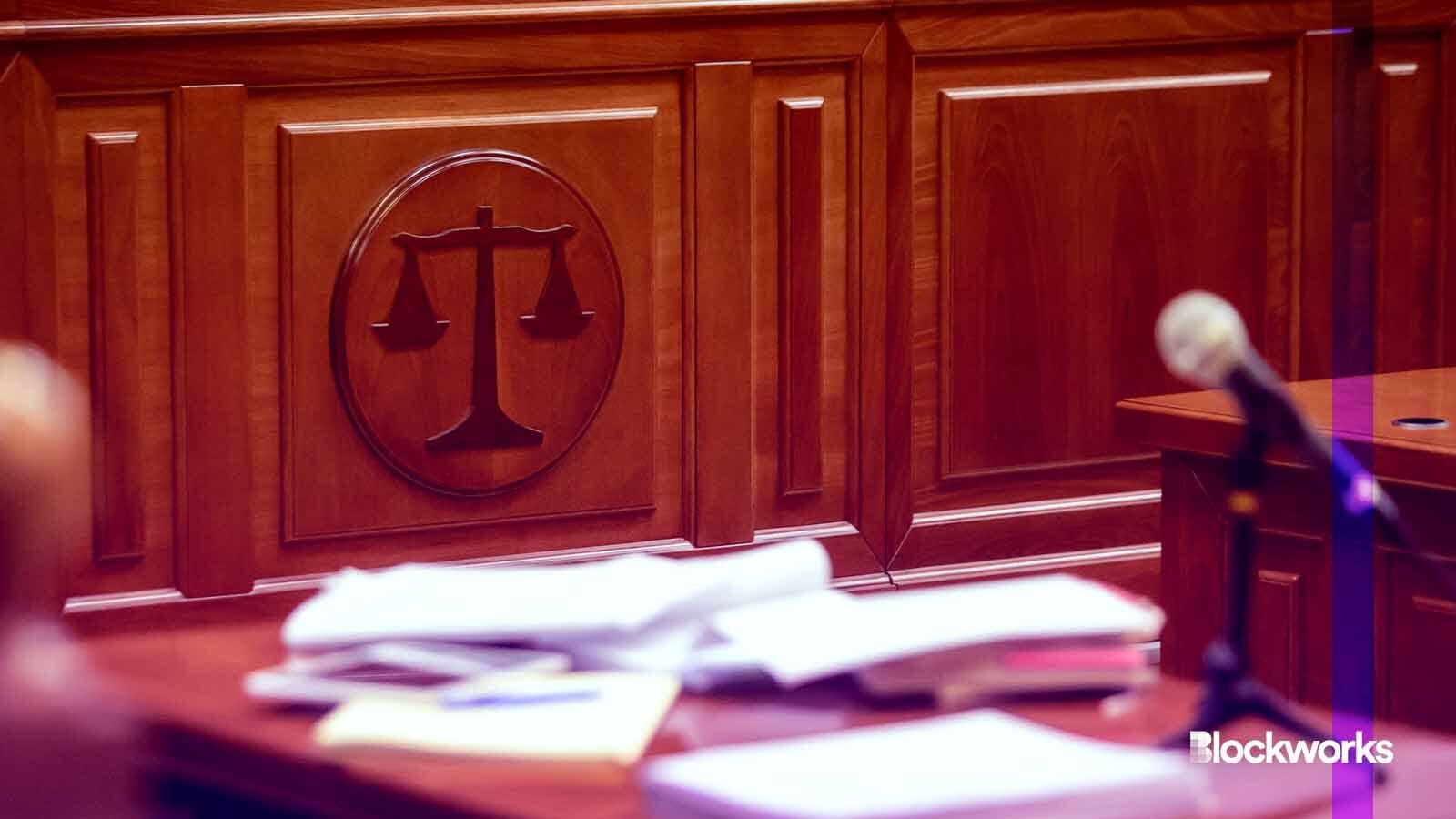The crypto industry’s future is in hands of the courts
Any attempt to regulate everything in the digital asset ecosystem in the same manner makes little sense

Salivanchuk Semen/Shutterstock modified by Blockworks
As a lawyer at the largest digital asset trade association in America, I have a deep appreciation for the role of America’s judicial system in developing the law.
But the role of the judicial system is outsized when applied to the novel legal questions of digital asset technology as regulators continue to enforce existing laws in a manner that fails to consider the paradigm shift that comes with blockchain technology.
As Washington races to catch up to this nascent industry, the future of digital assets may instead rest in the courts.
Today, digital assets are at the cutting edge of technology, finance and law; it’s already clear that blockchain could form a new backbone for the internet. While cryptography has existed for decades, its contemporary application in a truly decentralized manner is new. Historically, financial regulation has been built on a single premise: the existence of an intermediary. Intermediaries carry with them a certain amount of risk, and that risk can be appropriately managed through disclosure, reporting and enforcement regimes.
Digital asset technology changes this archetype.
Although some intermediaries do exist within the digital asset ecosystem, the technology itself is neutral, allowing for true peer-to-peer digital transactions in the same way that I hand cash to tip a manicurist instead of using my card.
Read more from our opinion section: Petty legislation is crypto’s greatest enemy
With this in mind, any attempt to regulate everything in the digital asset ecosystem in the same manner — the approach of the Securities and Exchange Commission — makes little sense. Even the financial use cases within digital assets requires a new approach; our regulatory system relies on the existence of intermediaries, so regulating assets that lack an intermediary falls outside much of the current regulatory scope (with the exception, of course, of laws preventing actions like fraud or market manipulation).
Gaps do still exist, and government agencies like the SEC and Office of Foreign Assets Control of the US Treasury Department have brought enforcement actions against participants in the ecosystem in the absence of regulatory clarity.
It’s these lawsuits — whether filed by the government or by a participant who seeks to remedy harm — that may add much-needed clarity.
For instance, the SEC’s enforcement actions against the three largest digital asset exchanges — Binance, Coinbase and Kraken — and the offensive lawsuit filed by the Crypto Freedom Alliance of Texas and LEJILEX against the SEC, all seek to answer a crucial question. Does the SEC’s characterization of the investment contract analysis (the Howey test) comport with the law? The SEC has outlined a “totality of the circumstances” view of Howey with certain assumptions baked in.
Both the SEC’s “test” itself and the assumptions underlying the test are being litigated in each of these four cases. The outcome may drastically impact how entrepreneurs and developers innovate going forward, or whether they are permitted to innovate with this technology at all.
Let’s then look at the three Tornado Cash cases. Two are civil, filed by plaintiffs who allege their constitutional rights have been violated by OFAC’s sanctions designation of the Tornado Cash software. The other is a criminal case brought by the Department of Justice against the two developers of the Tornado Cash software. All three of these cases involve questions related to how the government can impose mandatory reporting and monitoring obligations onto software developers — a novel question soon to be decided by federal judges.
And, of course, there are numerous other determinative cases answering questions like how securities laws apply to artists and content creators, whether mandatory reporting of wallet address information violates the Fourth Amendment, and the extent to which a decentralized group of individuals constitutes an organization.
America’s courts have the power to set precedent and guard our core constitutional rights — like the right to be heard, the right to be free from unreasonable search and seizure and the right to speak and associate freely.
When our policymakers fail to craft well-tailored regulation or simply go too far in trying, the courts can serve as the necessary check and balance that is essential for innovation to thrive in the realm of emerging technologies.
Get the news in your inbox. Explore Blockworks newsletters:
- The Breakdown: Decoding crypto and the markets. Daily.
- 0xResearch: Alpha in your inbox. Think like an analyst.






